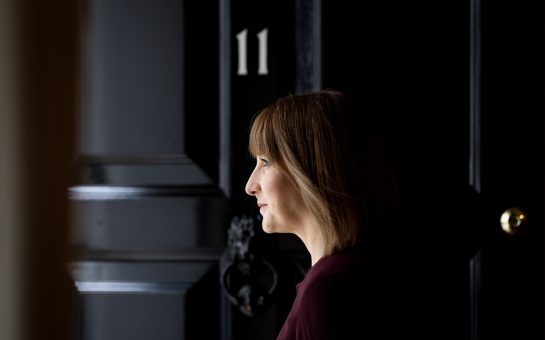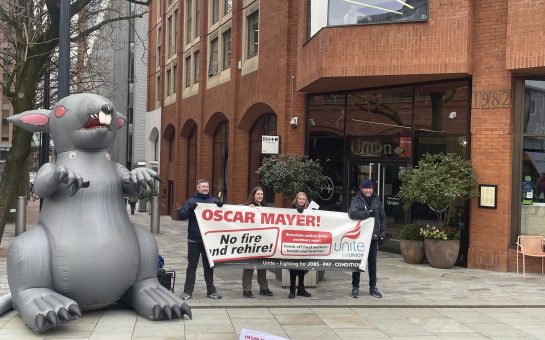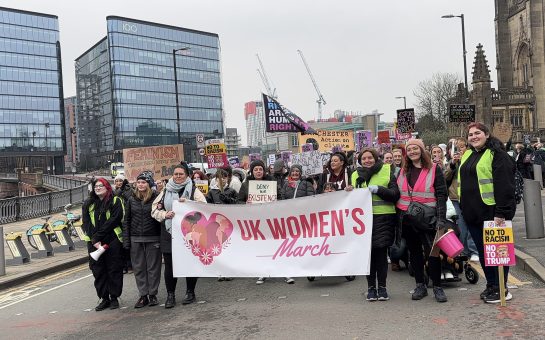“We need to organise a workers’ movement that is capable of taking political power through revolution. It’s not going to be done through the ballot box. If it could though, that would be wonderful.”
Manchester’s Northern Quarter is an unlikely place to discuss a revolution in the USA with Socialist Workers Party (SWP) presidential candidate Alyson Kennedy.
Although the November election takes place in the United States, she is not canvassing there. Instead, she opted to knock on doors in Manchester last month.
Of course, Alyson knows that the SWP has little chance of entering the White House. The party is focusing on building global awareness of the movement.
“One of the reasons I’m in Britain is because we [the SWP] have to begin to have ties with workers in other countries,” Kennedy, who first came to Britain in 1987 to support the miners’ protest against coal pit closures, tells MM.
“If the working class in Britain has a big struggle, which is going to come, that will help workers in the United States.”
As part of the push for global awareness Alyson is here to support Peter Clifford, the Communist League candidate for Manchester’s mayoral election next year.
However, Alyson doesn’t see challenging for elections as the answer.
“The whole world is in a capitalist crisis,” she explains.
“There’s no trade deal that’s going to fix the depression, because the depression was caused by how capitalism operates and that’s why our party says that the problem is capitalism. It’s the system that’s the problem.”
It is no secret that vast swathes of the US and UK’s population are fed up with stagnant wages, a widening wealth divide and an increasingly out of touch political class.
This discontent has given populist politics something of a boost. This is best illustrated in the UK voting to leave the EU and the astonishing rise of Donald Trump and Bernie Sanders in the US.
Last year, both Trump and Sanders were considered political outliers when running as candidates for the Republican and Democratic presidential candidacies respectively.
Yet both rode a wave of populist sentiment that fundamentally altered the discourse in both parties.
The contest ended with Trump taking the Republican Party nomination to square off against Democrat Hillary Clinton, backed by Bernie Sanders, for the White House.
Kennedy agrees that it is an extraordinary election and has noticed that people in the traditionally staunchly capitalist USA have “a real openness… to what our party is talking about.”
However, she sees any election within a capitalist system as a Catch-22 situation: whoever is elected, nothing will change for workers, as it is the system that needs to change, not just the people running.
“Donald Trump and Bernie Sanders got a lot of support during the primaries, and a lot of workers supported both of them,” she says.
“I went to the rallies of both Trump and Sanders. I went there to campaign and talk to the workers that were going to these rallies and I got a similar response from workers at both rallies.
“What we’re seeing is behind what is happening in the US elections this year. There is a real anger and disgust from wide layers of working people about the Government and politicians doing nothing about the problems working people face.”
Alyson feels that demagoguery, particularly from the Trump campaign, has harnessed this discontent to propel them toward the White House.
“Trump says ‘We need a strong man’, and he positions himself as the strong man that’s going to fix everything,” Kennedy says of his rhetoric.
“That appeals to a lot of people because they don’t know their own worth. We don’t need to depend on a strong man and it’s dangerous to depend on a strong man. We’ve seen that throughout history.”
She sees Clinton in a similar light.
“As a strong woman she says ‘I’m going to fix everything’. But her way of fixing things is to continue the legacy of Obama and she will continue the wars in the Middle East.”
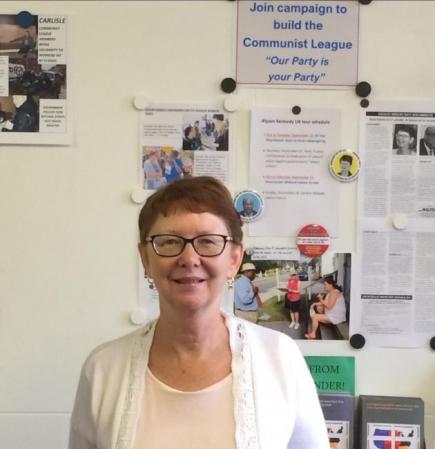
ANGER AND DISGUST: Workers in the US are extremely unhappy about the status quo which is unlikely to change with a Clinton or Trump win, says Kennedy
Kennedy seems to disagree with the image of the two candidates presented by the mainstream media.
From a foreign policy perspective, she highlights Clinton as “the real hawk candidate in these elections”, whereas Trump is more “isolationist”.
However, despite the differences, Kennedy sees Trump and Clinton as two sides of the same coin. She says that neither will be able to bring about effective change for working people because they will both operate within America’s capitalist system.
“People are getting tired of this. They’re fed up and they’re looking for answers.”
While knocking on doors in Failsworth in Manchester, Kennedy says she received similar feedback: she found that working people were fed up with the low wages, long hours, poor working conditions and politicians seemingly ignoring them.
Many of these people looked to Brexit as a way of making their voices heard. Kennedy says that many people she spoke to in Manchester voted to leave the EU and are angry that nothing’s changed.
“In Manchester, many people told us that they voted to leave the EU and one worker said ‘I voted to leave but nothing’s happened’.
“We told him ‘Well yes, nothing’s going to happen whether Britain left or remained, the economic crisis is still there’.”
In a similar way that Brexit was the populist product of one section of the electorate, Jeremy Corbyn has enjoyed a populist groundswell from another part of the UK electorate that has placed him as leader of the Labour party.
However, Kennedy views Corbyn in a similar way to Sanders and Trump. She sees him as a politician that says things that people want to hear that is attractive because he isn’t tainted by party machinery.
Yet were he elected he wouldn’t be able to effect any real change due to the confines of the system he is operating in.
“Most of [the people I spoke to] do not like Jeremy Corbyn or the Labour party,” she says.
“Now I didn’t speak to a million workers but everyone I spoke to had something to say about that.
“They said the Labour party was dead. That it just doesn’t represent them any more. Workers do not see Labour as their party.”
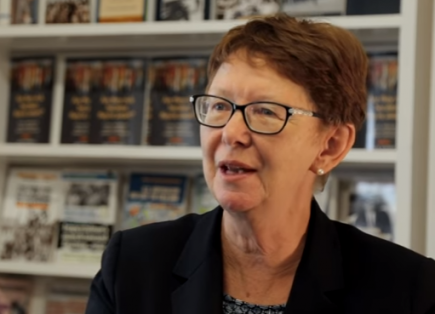
DEAD LABOUR: Kennedy says the majority of people she spoke to in Britain said Jeremy Corbyn’s party is on the way out (image courtesy of IBTimes via YouTube, with thanks)
In an era of highly educated (usually in the same schools and universities as each other) career politicians inhabiting most of the political class, these statements certainly hold some truth and a lot of working people will feel a degree of anger at being denied a voice.
Kennedy sees these populist political movements, such as Trump, Sanders and Brexit, as the result of people’s misdirected anger toward an out-of-touch political status quo.
“People are looking for answers. The leave vote represents that. Sanders and Trump represent that.”
So what are Kennedy and the SWP’s answer?
“The only way we’re going to solve these problems is if working people take political power and begin to come up with a better way of organising the economy.
“We think that it cannot be based on a profit system. And we believe that the wealth workers produce through our labour, that now becomes the profits of the rich, should be used to benefit society as a whole.”
The financial crash and subsequent recession revealed the flaws in our global capitalist system: stagnant economies, global instability and a widening wealth divide are leading populaces to look beyond accepted political norms.
Although Kennedy’s calls for a socialist revolution in the USA might seem farfetched now, if someone told you five years ago that Donald Trump would be running for the US Presidency in 2016 and Britain would vote to leave the EU, would you have believed them?
With people growing increasingly angry and feeling ignored by mainstream politicians, the future has never looked more uncertain and people like Kennedy might just be the thin end of a wedge of political change.
